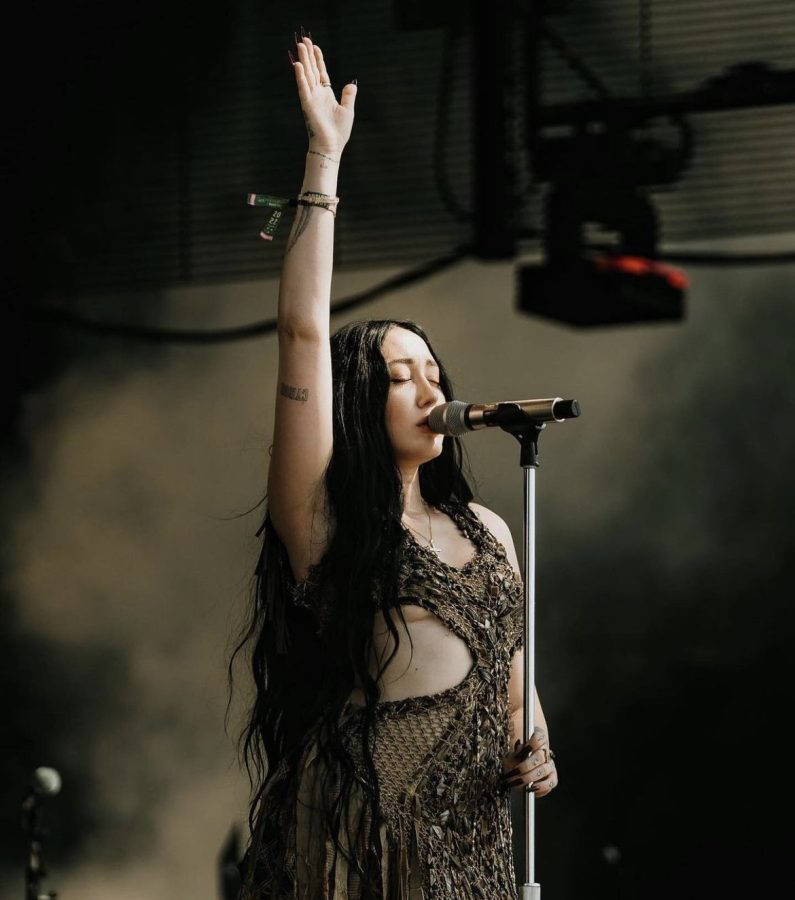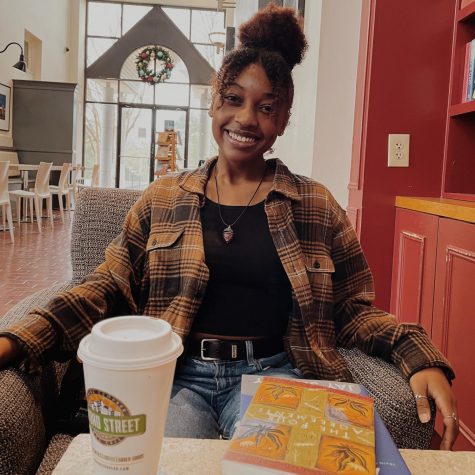The pains of growing up, the struggle of finding steady love, the harsh reality of drug addiction and the difficult journey of accepting the entirety of oneself are all issues explored in singer and songwriter Noah Cyrus’ debut album “The Hardest Part.”
Almost two years after releasing her third EP, “People Don’t Change,” Cyrus beckons listeners into her world once again with a slightly different sound as she explores more folklore-laced instrumentals paired with her southern-rich vocals and catchy pop melodies.
Cyrus opens and ends the album with “Noah (stand still)” a soothing ballad with one version featuring father Billy Ray Cyrus — a father-daughter duo we didn’t know we needed until now.
One can’t help but be touched by the lyrics of “Noah (stand still)” as Cyrus recounts two words passed down from generation to generation in her family, saying in an interview that the sound advice of “when you don’t know what to do, just stand still” was something she needed to hear from her father as she battled with recovering from substance abuse and struggled to find herself again.
Fans of Cyrus’ recent projects “The End of Everything” and “People Don’t Change” probably expected “The Hardest Part” to be a mix and extended replica of the two with the usual simple, mellow tracks highlighting Cyrus’ captivating voice like heard in tracks “Lonely,” “I Got So High That I Saw Jesus,” or “Dear August.” Cyrus, however, incorporated more upbeat country-pop tracks behind her somber lyrics with songs like “Ready to Go,” “Mr.Percocet” and “I Just Want a Lover.”
Out of the 10 tracks, the album only has two features, which is ideal for a debut album (as to not overpower an artist still discovering their sound). However, with only two features comes the burden of the unspoken but expected rule of any record: “the limited features better be good.”
There’s no question to how well Billy Ray Cryus’ feature was received by listeners in “Noah (Stand Still),” but the same can’t be said about Death Cab for Cutie lead singer Benjamin Gibbard’s feature in “Every Beginning Ends.”
Unlike the magical vocal pairing and artistic chemistry of Cyrus and PJ Harding in their 2021 EP “People Don’t Change,” hearing Gibbard on the fourth track of the album felt mismatched. It interrupts the flow of the album like an alarm clock interrupting a peaceful sleep. There’s probably other male vocalists that were better suited for this track (and Gibbard probably would’ve sounded great on a different project with an alternative rock undertone), but Gibbard’s feature made the song “Every Beginning Ends” mediocre at best.
Aside from the misguided feature, Cyrus never fails with her storytelling — something that makes her stand out amongst her contemporaries.
The most gut-wrenching, heart-felt lyrics on the album were found in songs “Loretta’s Song,” “Hardest Part,” “I Burned LA Down” and “Unfinished.”
Not once during the album did sister and pop sensation Miley Cyrus come to mind despite them having similar voices — a problem Cyrus has been fighting against since her debut single “Make Me (Cry).” This realization is telling of Cyrus finally removing herself from her sister’s shadow and coming into her own as an artist. This is something she has noticed as well.
“In the beginning, it was like a little bit aggravating and maybe a little tougher to make my own,” Cyrus said on Billboard News. “I’ve seen a big shift in that where I really have kinda become my own.”
Being 22 years old, Cyrus has the opportunity to make music that speaks for the worries, hopes, and struggles of her peers, but her storytelling abilities and life experiences can be a vehicle of healing, understanding and connection for any age.
“The Hardest Part” was the easiest album to fall in love with and will effortlessly become a favorite for many.









